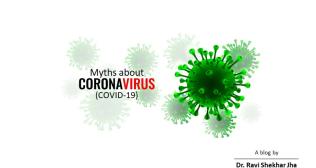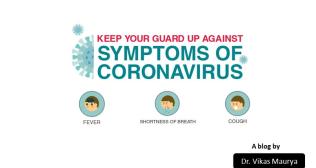
Managing Asthma: Tips for Everyday Life
Asthma is a chronic respiratory condition that affects millions of people worldwide. It is characterized by inflammation and narrowing of the airways, leading to symptoms such as wheezing, coughing, shortness of breath, and chest tightness. While asthma can be a significant challenge, effective management strategies can help individuals lead a full and active life. Here are some practical tips for managing asthma in everyday life.
1. Know Your Triggers
Identifying and understanding your asthma triggers is essential for effective management. Common triggers include allergens (pollen, dust mites, pet dander), respiratory infections, tobacco smoke, exercise, cold air, and strong odors. Keeping a diary of your symptoms and the circumstances surrounding them can help you identify patterns and avoid triggers.
2. Follow Your Asthma Action Plan
Work with your healthcare provider to develop a personalized asthma action plan. This plan outlines daily management strategies, including medication use, how to recognize worsening symptoms, and what to do during an asthma attack. Regularly review and update the plan as needed to ensure it reflects your current condition.
3. Take Medications as Prescribed
Adhering to your prescribed medication regimen is crucial for managing asthma. This typically includes two types of medications:
Long-term control medications (e.g., inhaled corticosteroids) help reduce inflammation and prevent asthma symptoms.
Quick-relief medications (e.g., short-acting beta agonists) provide immediate relief during an asthma attack.
Always carry your rescue inhaler, and make sure to understand how and when to use it effectively.
4. Monitor Your Symptoms
Regularly monitor your asthma symptoms and peak flow readings, if recommended by your doctor. Peak flow meters can help measure how well air is flowing out of your lungs. Keeping track of your readings can alert you to worsening asthma and guide your medication adjustments.
5. Maintain a Healthy Lifestyle
A healthy lifestyle can significantly impact asthma management. Regular exercise, a balanced diet, and adequate sleep can help improve overall lung function and reduce asthma symptoms. Engage in activities that you enjoy, but consult your healthcare provider for guidance on safe exercise options, especially if exercise is a trigger.
6. Create an Asthma-Friendly Environment
Making changes to your living environment can help reduce exposure to triggers. Keep windows closed during high pollen seasons, use air purifiers, avoid indoor smoking, and regularly clean to reduce dust and allergens. Consider hypoallergenic bedding and avoid using strong cleaning products or fragrances.
7. Educate Yourself and Others
Understanding asthma and its management can empower you to take control of your condition. Educate yourself about asthma, and share information with family, friends, and caregivers so they can better support you during an asthma episode.
Pulmonary Rehabilitation: What to Expect and How It Helps
Pulmonary rehabilitation is a comprehensive program designed to help individuals with chronic respiratory diseases, including asthma, improve their overall health and quality of life. It typically includes a combination of exercise training, education, and support, and is tailored to each patient’s specific needs.
What to Expect
Assessment: The program usually begins with a thorough assessment by a healthcare team, which may include pulmonologists, respiratory therapists, physical therapists, and dietitians. This evaluation helps determine your current level of lung function, physical fitness, and any other health concerns.
Individualized Exercise Plan: Based on your assessment, a personalized exercise plan will be created. The program typically includes aerobic exercises, strength training, and flexibility exercises to improve lung capacity, endurance, and overall physical fitness.
Education Sessions: Participants will receive education on respiratory health, medication management, and techniques for better breathing. Understanding how to manage asthma triggers and recognizing early signs of exacerbation are key components of the education provided.
Nutritional Guidance: Diet plays an essential role in managing respiratory conditions. Nutritionists may offer guidance on maintaining a healthy diet to support overall lung health.
Ongoing Support: Pulmonary rehabilitation programs provide ongoing support and motivation through group sessions or individual counseling. This support fosters a sense of community and helps participants share experiences and coping strategies.
How It Helps
Improved Symptoms: Many individuals experience reduced asthma symptoms and fewer exacerbations after participating in pulmonary rehabilitation.
Increased Exercise Tolerance: The structured exercise component helps improve lung function, allowing individuals to engage in physical activities with greater ease.
Enhanced Quality of Life: By providing education and support, pulmonary rehabilitation empowers individuals to manage their condition effectively, leading to a better quality of life.
Categories
Clear allMeet the doctor

- Pulmonology | Pulmonology | Sleep Medicine | Pulmonology and Critical care
-
22 Years
-
1800



















